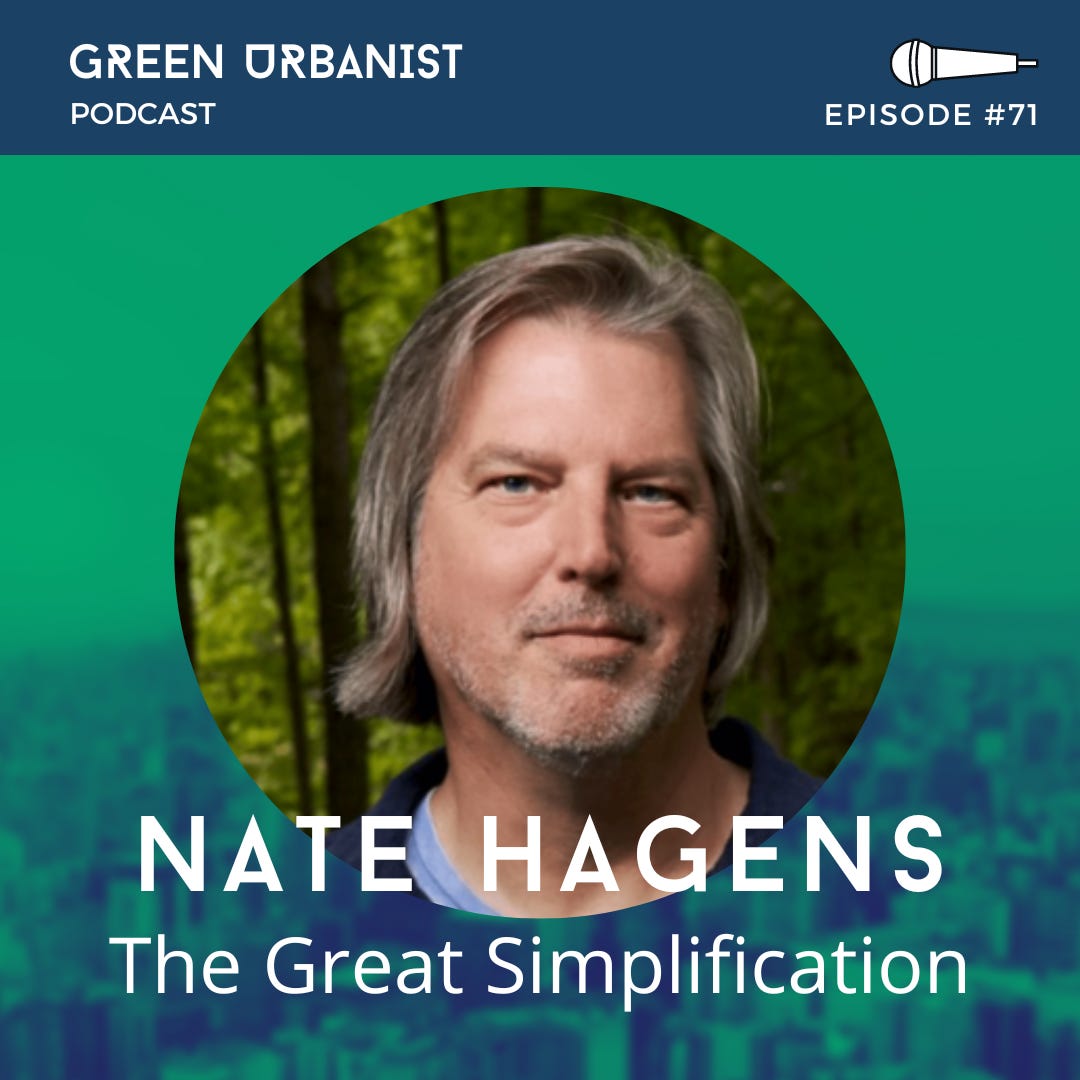Nate Hagens is a systems thinker and educator focused on a concept he calls The Great Simplification. He has spent the last 20 years studying the systems we live in like energy, ecology and economics. He teaches at the University of Minnesota and speaks widely on these topics, including on his youtube channel called Nate Hagens and his podcast called The Great Simplification.
We discuss:
The Great Simplification and what that means for cities
What the end of fossil fuels means for the world
The importance of scenario planning for the future of cities
Why electric vehicles and renewables are not the answer to climate change
Why a post-growth economy is inevitable in the coming decades
We discuss some ideas for what post-growth cities might look like. I will follow up with an episode of more ideas, inspired by this conversation with Nate.
Nate is extremely honest and clear about the direction he sees the world going. Some of you listening will likely disagree with his conclusions and may even feel defensive. Of course we're all free to disagree with each other, but I urge you to keep an open mind and consider seriously what he says and follow up with the resources in the episode description. He goes into these ideas in a lot more depth on his youtube channel and podcast, which are really worth checking out.
Listen to this episode and check out the whole back catalogue of episodes on Spotify, Apple Podcasts and my website.
More of Nate's content:
https://www.thegreatsimplification.com/
https://www.youtube.com/@thegreatsimplification
I especially recommend watching this animated mini-doc he created to explain The Great Simplification in more detail:
I’d love to hear your thoughts on this episode. Start a conversation in the comments!
In other news, I have some fantastic podcasts recorded and ready for editing. I have a busy August ahead of me so you may to wait till September to hear them. As a teaser, here are some photos from my recent recording session with the wonderful Sean McCormack of Ealing Wildlife Group as we discuss their plans to reintroduce beavers to urban London.
Till next time,
Ross







